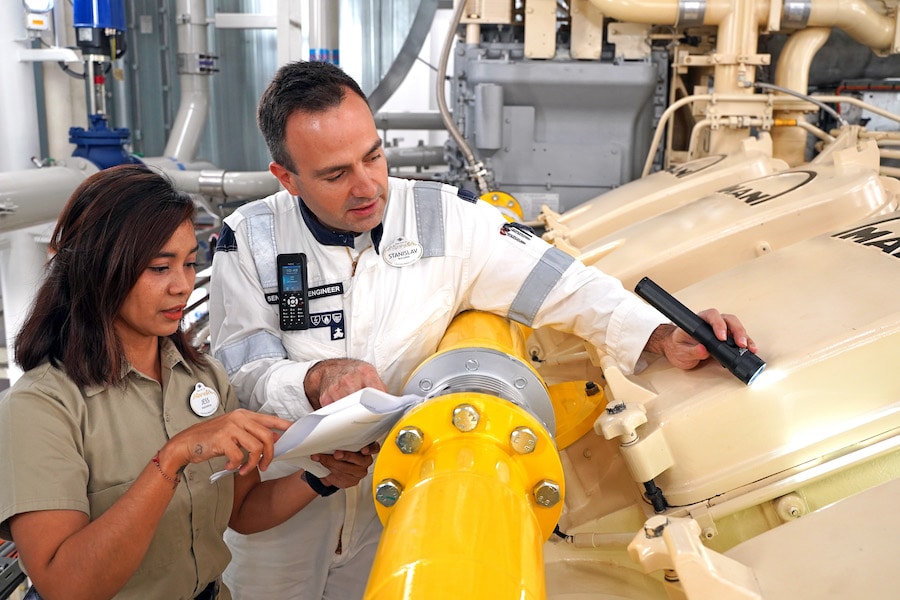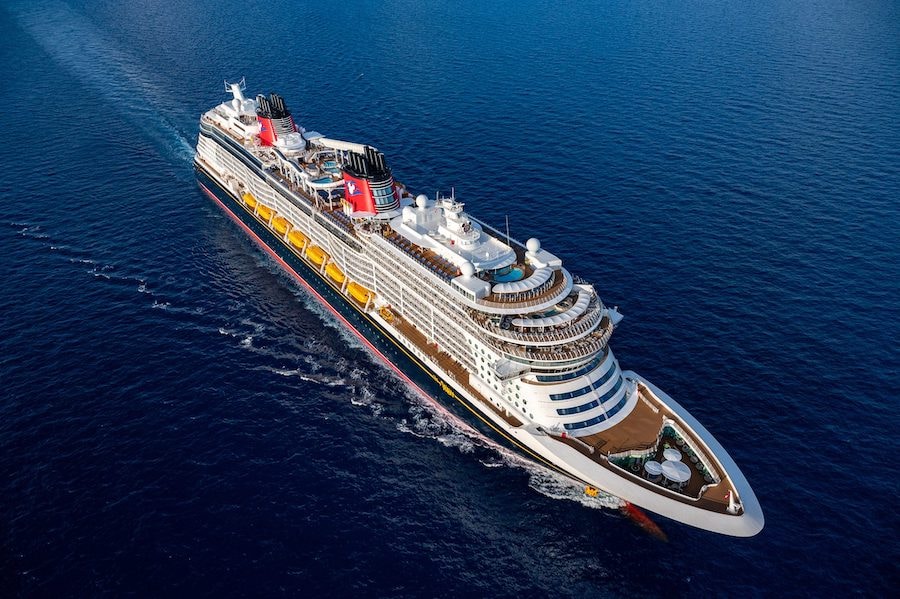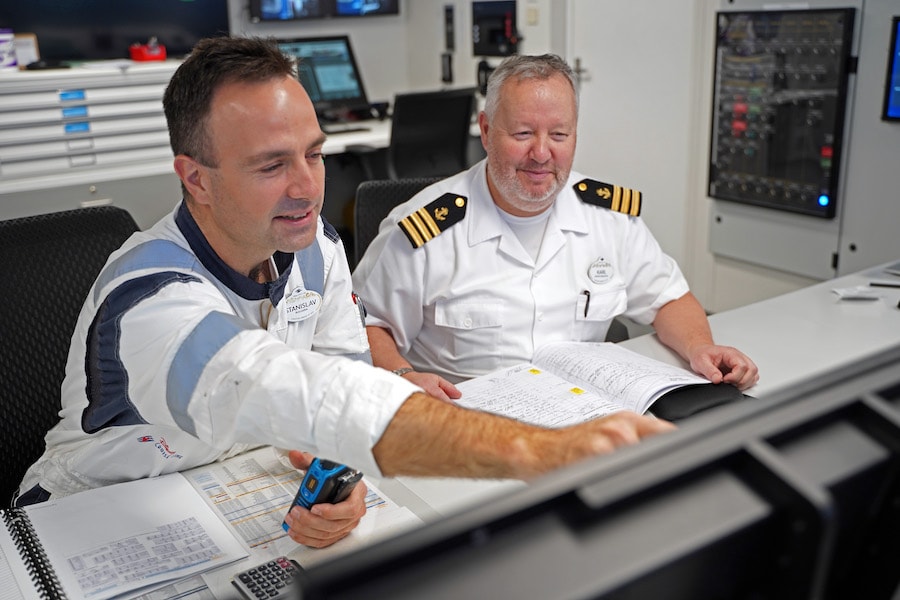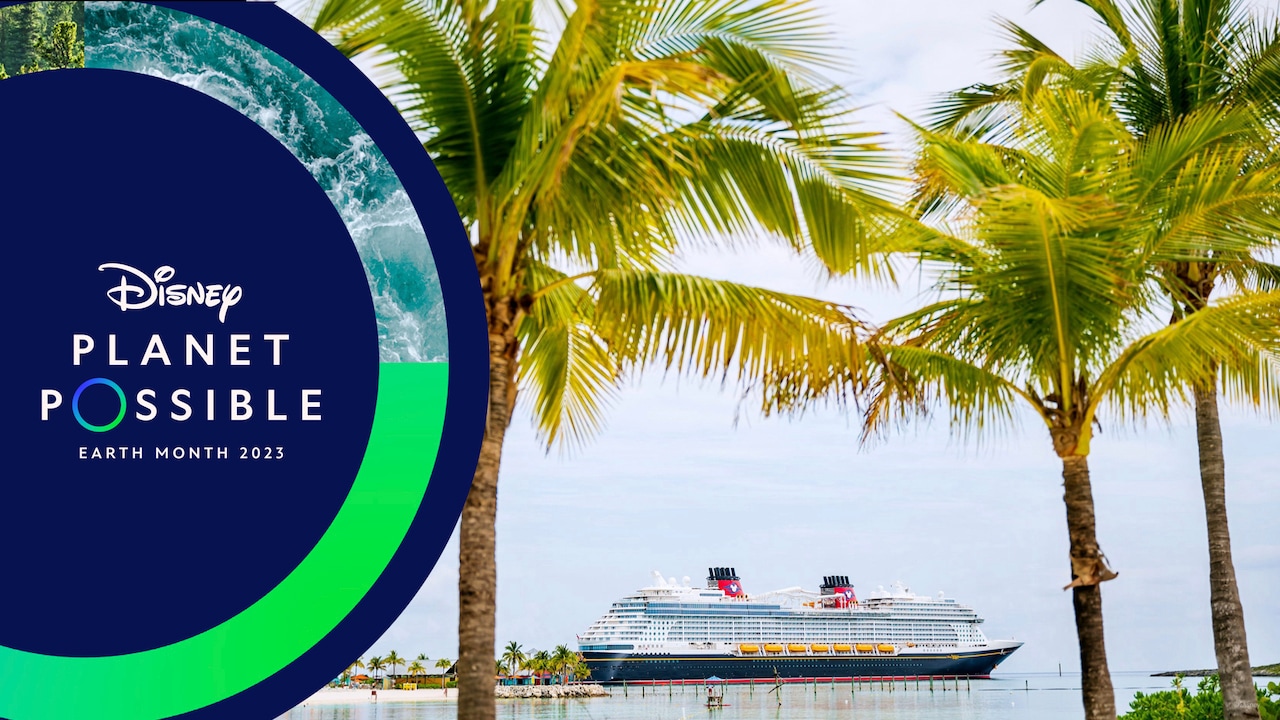One of my favorite segments of a new documentary by our friends at National Geographic, “Making the Wish: Disney’s Newest Cruise Ship,” is the inside look at how the ship’s advanced propulsion system and use of liquefied natural gas (LNG) save fuel and reduce emissions.
As we continue to celebrate Earth Month, I wanted to share more about these and other innovations in ship design that demonstrate Disney Planet Possible in action and help make the Disney Wish nearly 30 percent more fuel efficient and emit approximately 20 percent less greenhouse gases.
1. LNG Fuel
The Disney Wish’s use of liquefied natural gas (LNG) eliminates nearly all harmful sulfur oxides (SOx) and particulate matter emissions, reduces the emission of nitrogen oxide (NOx) by approximately 37 percent, and reduces onboard carbon dioxide (CO2) emissions by approximately 20 percent compared to traditional diesel or marine fuel.

2. Hydrodynamic hull and propulsion system
The Disney Wish’s hull and propulsion system (known as an “azipod”) were specially designed to reduce the ship’s drag in the water, saving fuel and reducing emissions. By reducing the engine power needed to propel the ship, these two initiatives alone save nearly 1,800 tons of fuel annually.
In addition to a streamlined design, the ship’s hull uses a special coating of two different materials that both protect the ship and further enhance her ability to glide through the water with ease.

3. Energy-efficient systems
Across the ship, numerous systems have been optimized for energy conservation. For example, the ship’s fuel-efficient wastewater treatment system saves 500 tons of fuel each year while purifying the ship’s wastewater to levels far exceeding international shipping standards. These fuel savings equate to a year’s worth of electricity use for more than 250 average households. As another example, the ship’s air conditioning and heating systems save fuel and energy by adjusting in real-time to deliver just the right amount of cold or hot air throughout the ship.
4. LED lighting
Approximately 90 percent of all lighting onboard uses LED bulbs, which reduce weekly energy consumption from lighting by about 30 percent. Using these low-energy bulbs, which give off less heat, also lessens the demand on the ship’s cooling systems compared to traditional lighting.
5. Energy management and monitoring
Like all our ships, the Disney Wish has a dedicated Environmental Officer who is ranked among the most senior leaders onboard. Guided by a state-of-the-art energy monitoring and management system that tracks the ship’s performance, these officers help to ensure the Disney Wish is operating as efficiently as possible.

All these innovations and more add up to make a big difference. When paired with our long-standing fleet-wide initiatives – such as extensive onboard recycling, removing nearly all single-use plastics onboard and even using costumes made from recycled plastics – the Disney Wish invites families to enjoy an enchanting, award-winning cruise vacation while minimizing the impact on the environment.

